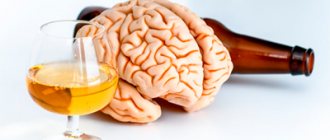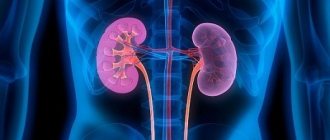Psychology
- Who is Louise Hay
- Psychosomatics of alcoholism according to Louise Hay
- What psychologists say about alcoholism
It is believed that alcoholism is a disease, and some authors believe that it is of a psychosomatic nature, that is, associated with mental characteristics. A number of authors claim that with the help of certain techniques this scourge can be overcome, among them the American Louise Hay. However, her methods are questionable for many doctors, so they need to be treated with caution.
Who is Louise Hay
Now Wikipedia calls her a psychologist, but just 6 years ago she was called nothing more than an American author of books on popular psychology . There is no information that she has a psychological education or is somehow connected with medicine. Hay began to practice her ideas only in the early 70s, and before that she worked as a model and studied transcendental meditation.
Louise Hay
According to Louise's recollections, in 1978 she was diagnosed with cancer . She fought the disease with her own methods: deep introspection and affirmations - a kind of mantras aimed at instilling certain information in herself. Hay claimed that thanks to this technique she was able to completely recover, and even the lack of medical evidence did not bother anyone.
During her life, Louise wrote several dozen books, 13 of which were translated into Russian.
Psychosomatics and alcoholism
As you know, alcohol-containing drinks appeared more than a thousand years ago. Since that time, our ancestors drank wine or beer in happy or sad moments of their lives. Over time, everyone got used to this custom and began to look for “the truth in wine” when any problems appeared. In fact, if you think about it, each of us understands that we can cope with any difficulties in life without alcohol. However, society encourages relaxation using this very method, which suggests that alcoholism is psychosomatic in nature.
This disease is considered mental, as it is associated with the manifestation of weak willpower and insufficient strength of character. The psychosomatics of alcoholism in men and women are similar, since the development of the disease, regardless of gender, is influenced by the same reasons:
- Daily stress at work and at home
- Lack of time for rest, heavy workload
- Losing a loved one
- Complexes, self-rejection
- Loneliness
- Poor, non-trusting relationship between spouses
- Sad news about someone's serious illness
The psychosomatics of alcoholism, first of all, refers to a person’s reluctance to independently fight difficulties and be strong. Many people are sure that a glass of alcohol contains the solution to all problems, or at least a way to escape from them. However, it is not.
Over time, a person believes that alcohol is a universal cure for all problems. In the process, he does not notice how alcohol addiction begins. It can be said that women develop this disease faster, since their liver is weaker and more susceptible than men's. Alcoholism caused by psychosomatics has a number of critical consequences for the psyche. These include:
- Insomnia, which leads to neuroses, lethargy and, in severe cases, fainting
- Delirium tremens or delirium tremens, which leads to uncontrollable behavior and hallucinations. It is considered to pose a serious threat to human life
- Coma resulting from severe alcohol poisoning, which often follows prolonged heavy drinking
- Depression, tearfulness, isolation
- Hallucinations
- Irritability
To avoid the consequences of alcoholism, which also involve damage to internal organs, treatment must be started immediately. The comprehensive rehabilitation center in Krasnodar offers its patients comprehensive treatment for alcohol addiction. Our experienced specialists will select a therapy method for you based on your individual characteristics. Sign up for a free and anonymous consultation by calling.
Psychosomatics of alcoholism according to Louise Hay
Louise Hay taught that any thought is material and can influence a person’s life, physical condition and health . In her opinion, the characteristics of our thinking are influenced by external factors, including the attitude of the people around us towards us.
Alcoholism has reasons
Thus, alcoholism, being a psychosomatic disease, occurs against the background of the following conditions:
- feelings of guilt before relatives;
- self-rejection;
- a feeling of hopelessness in the face of impending difficulties.
Louise calls the main reason for alcohol addiction a lack of understanding of the meaning of life , both in terms of the current day and in the long term. The author suggests treating this condition with certain affirmations, for example, repeating to yourself a simple truth: “I love myself and I do everything right.”
There is an extensive table of psychosomatics, with which you can understand what Louise Hay associated almost every illness with
Psychosomatics of alcoholism in Ayurveda
Interestingly, traditional Indian medicine has its own view on the somatic causes of this harmful addiction.
Ayurveda says that alcohol is created from water and fire. Moreover, water is a symbol of matter, and fire is a symbol of father. When a person drinks, he sends alcohol to the liver, i.e. to the organ that is responsible for attachments. This can be explained simply - a person really lacks parents, their love and support. Perhaps an addiction to alcohol developed due to the divorce of mom and dad, or the loss of one of the parents. Or maybe a person grew up in unloving conditions, among parental conflicts, where absolutely no one needed him.
What psychologists say about alcoholism
It is known that Louise was not a certified psychologist, and therefore widely known information about the human psyche . It has been scientifically proven that alcoholism is most associated with psychological reasons, and it can be dealt with, including psychological techniques.
Valery Sinelnikov
Different authors have their own understanding of the psychological causes of alcohol dependence. For example, Valery Sinelnikov believes that alcohol saves a person from everyday difficulties . Luule Viilma believes that the problem is caused by a lack of love for the individual. Summarizing scientific data, we can make the following list of psychological reasons:
- diffidence;
- excessive selfishness;
- vulnerability;
- inability to suppress fears;
- infantilism;
- inability to relax;
- inability to self-realize.
Many of these reasons are formed under the influence of negative events - domestic violence , excessive guardianship in childhood, childhood trauma. A good psychologist will help you get to the root cause and determine the principles for further assistance.
To solve the problem, you should consult a psychologist
Alcoholism is also a physiological addiction, and therefore it must be dealt with comprehensively, using special medications and consultations. This is the position of modern medicine.
It is dangerous to rely only on the methods of Louise Hay or any other author in the fight against addiction. It is much more effective to contact traditional psychologists and narcologists.
Psychotherapy in the treatment of alcoholism
Alcohol abuse, including the development of alcohol dependence syndrome, is a highly common disease among the population of the Russian Federation. The cause of the disorder is considered to be the abuse of alcoholic beverages. Treatment of alcohol addiction is quite labor-intensive. This is due to the complex mechanism of development of this dependence, including both internal causes, genetic conditioning, psychological characteristics, and many other interpersonal interactions. It is impossible to get rid of alcohol addiction forever, but achieving a stable and stable remission is quite possible. This requires the patient’s desire to get rid of addiction. Psychotherapeutic treatment is carried out for each patient, because alcohol makes a weak-willed creature out of a person. Treatment of alcoholism with psychotherapy involves influencing patients in several areas:
- on the one hand, the etiological basis of addiction is being studied. The doctor must understand why the patient’s life is reduced to drinking alcohol;
- on the other hand, the doctor programs the patient with a natural desire to stop drinking alcohol. Typically, an alcohol addict is given the idea that alcohol causes disgust or is instilled with fear of drinking alcohol.
Psychotherapy for alcohol addiction is combined with drug therapy.
Only a complex effect helps to successfully cope with the disease. Additional support for the patient is the understanding of family and loved ones. In general, psychotherapy in the treatment of chronic alcoholism works by changing the human psyche. The doctor helps the patient resolve outdated problems, helps him make sober decisions without the participation of alcohol and look at the life around him from a different perspective, or simply instills a feeling of disgust for alcoholic products. Who can a psychotherapist help?
Psychotherapy sessions for alcoholism can help every drinker who wants to be treated and overcome their addiction. The patient himself must decide to fight, want it and set a goal for himself - recovery. Forceful psychological influence will not give the desired results. It is also impossible to cure alcoholism in persons suffering from alcoholic dementia or dementia resulting from toxic destruction of the brain. It is no longer possible to help such people, because the consequences of alcohol exposure on brain cells on such a scale are irreversible.
Indications for psychotherapeutic treatment are the presence of the first or second stage of alcohol addiction, as well as the desire of the patient to be cured. The psychotherapeutic approach to the treatment of alcoholism is safe for pregnant or elderly patients, as well as for somatic diseases. But there are also clinical cases in which psychotherapy is not only useless, but also contraindicated:
- epileptic seizures, epilepsy;
- psychopathic conditions;
- severe mental retardation;
- delirium tremens;
- schizophrenia;
- acute psychoses, having both alcoholic and non-alcoholic origins.
Also, psychotherapeutic treatment of alcoholism is not recommended for use in cases of myocardial insufficiency and hypertensive crisis, acute infections, recent stroke or heart attack.
Psychotherapist or narcologist
It is impossible to treat addiction without the use of drugs, but relying only on drug treatment for alcoholism is also pointless. After all, medications are not able to eliminate the immediate cause of alcohol addiction; deep psychotherapy sessions can help here. Therefore, any narcologist at the same time needs to be both a psychotherapist and a psychiatrist. By the way, today you can often find a similar formulation - a psychiatrist-narcologist.
During a conversation with an alcohol-dependent patient and his relatives, the doctor faces the most important task - to find out as much detailed information about the patient as possible and to find out the nature of his alcoholism. The correctness of such an assessment will be reflected in the future on the appropriateness and effectiveness of choosing a method of treating alcoholism. This is where the doctor needs psychotherapeutic methods to understand the causes of the addiction that has developed.
Methods of psychotherapy in the treatment of alcoholism
In modern treatment of alcoholism, several psychotherapeutic techniques are used.
- Narcopsychotherapy, in which the patient is immersed in a hypnotic state by taking medications
- Aversive psychotherapy is a unique form of behavioral psychotherapeutic intervention in which a relationship is established between unpleasant experiences and the patient’s unwanted behavior. The essence of the technique is that stimuli associated with unpleasant sensations (pain, electric shock, fear, etc.) are presented in temporary combination with a stimulus such as alcohol.
- A hypnotic effect in which the patient is put into a trance and in a similar state the specialist inspires the alcoholic that it is vital for him to recover from addiction. A well-known method of this nature is Dovzhenko coding.
- Rational psychotherapeutic influence, during which the doctor applies the patient’s mental logic. The patient is assisted in identifying and personal self-analysis of the reasons that provoked alcohol addiction.
- Autogenic activities, in which the alcoholic instills in himself the attitudes necessary to get rid of addiction, while remaining in a calm and relaxed state.
- Emotional stress techniques. The doctor works with the emotional sphere of the alcoholic, helping him change his attitude towards addiction, towards himself and his loved ones.
- Group classes help the alcohol addict understand that he is not the only one with a similar problem. Such sessions involve not only treatment by a doctor, but in them patients themselves heal each other. An alcoholic can look at himself from the outside and compare his problem with options for eliminating it.
- A playful, creative approach to treatment. Such therapy is aimed at distracting the patient from his destructive love of alcohol. Behavioral therapy is also used here, during which traumatic factors are identified, the patient strengthens his abilities, and his potential for getting rid of addiction is revealed.
Psychotherapeutic goals involve not only mitigating and stopping cravings for alcoholic beverages, but also achieving a stable remission of the disease, for which it is necessary to eliminate the etiological factor of addiction and activate the recovery processes.
Difficulties in psychotherapy
A psychotherapeutic approach to the treatment of alcohol addiction can be complicated by the fact that alcoholics are always destructive towards their own personality, which is why they try to avoid any help or understanding of their own addiction. It is the psychotherapist who must help the patient independently realize the full extent of self-destruction that awaits him on the path of alcoholism. Sometimes the use of a psychotherapeutic method of treating alcoholism is complicated by the patient’s lack of sufficient intelligence and motivation, which excludes the possibility of self-organization. That is why narcologists recommend seeking treatment at stages 1-2 of alcohol addiction, when the intellect and brain structures have not yet been so damaged by alcohol toxins.
Many can be stopped by such a factor as the cost of psychotherapeutic treatment, because such sessions are quite expensive today. In such a situation, it is worth using the Alcoholics Anonymous community, where therapy is provided practically free of charge. But the absence of individual behavioral psychotherapy does not guarantee effective treatment for alcohol addiction.
Chances of getting rid of alcoholism
Anti-alcohol psychotherapy solves many problems and helps the alcoholic cope with the etiological problem of addiction. Long-term systemic treatment, which involves complex measures, helps the patient get rid of attitudes and moral problems that subconsciously force him to drink. Only a diverse and integrated approach can ensure sustainable results.
Factors such as the stage of addiction are also of considerable importance, because in the initial stages it is much easier to cope with the disease. The chronic form of alcoholism is much more difficult to treat. Alcoholism also affects the likelihood of recovery. Even if the course of psychotherapy for alcoholism is completed successfully, and the former alcoholic does not drink alcohol for many years, do not forget that any breakdown can return to alcohol dependence. Therefore, such patients should be prepared in advance for the fact that throughout their lives they will have to strictly control any encounters with drinking, avoiding the use of alcohol.











